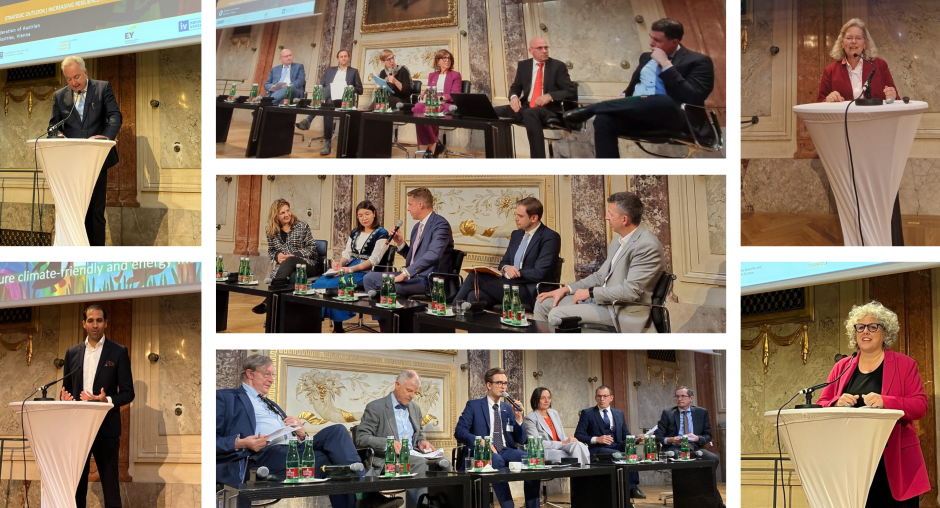Future of energy systems and supply chains in focus at the 6th Vienna Energy Security Dialogue

The strategic outlook for energy markets, system vulnerabilities, and industry competition took centre stage at this year’s edition of the Vienna Energy Security Dialogue. Titled “Looking Ahead: Shaping the Post-Crises Global Energy Market(s)”, the annual event took place on 25 October in partnership with the World Energy Council Austria, the Federation of Austrian Industries, and Ernst and Young Austria.
It gathered around 120 policymakers, scientists, academics, and industry representatives to engage in discussions exploring lessons learned from the energy crisis, ongoing shifts in the global energy supply chains, system vulnerabilities due to human-made and climate-related threats, and perceived trade-offs between international trade and industry competition.
“While the worst of the crisis is behind us, the energy landscape in the OSCE region remains fragile. This is why the OSCE, while implementing projects on advancing energy security and sustainability, also remains committed to providing a much-needed platform for international dialogue and collaboration,” said Ms. Sylvie Goyet, Deputy Co-ordinator / Head, Environmental Activities, OSCE.
Since its inception in autumn 2018, the Vienna Energy Security Dialogue has become a leading annual international forum for energy stakeholders to share experiences and ideas on building safe, affordable, and environmentally responsible energy systems.
Prof. Dr. Stefan Schleicher, Vice-President of WEC Austria, highlighted the increasing prevalence of unexpected events as the new norm and emphasized that it is imperative that the energy sector proactively prepare for these challenges.
During the opening session, keynote speakers Ms. Rana Adib (REN21), Prof. Karl Rose (Karl-Franzens-Universität), Dr. Stephan Sharma (Burgenland Energie), and Dr. Irene Giner-Reichl (GWNET) shared their insights into the current energy landscape and the main challenges and opportunities that lie ahead.
Speakers covered a range of topics, including the implications of bureaucratic hurdles for implementing clean energy projects, the risk of supply chains concentration, the need for increased European investments in green industries, the importance of promoting inclusive energy transition strategies, and addressing energy poverty in both developing and industrialized countries.
Ms. Adib, Executive Director, REN21, underlined that “Renewable energy is not only a way to address energy security, but is a chance to build a healthier, prosperous and more inclusive world. To build market and societal support globally and locally, and especially in times of growing polarization and conflict, we need to create new spaces to exchange on divergent perspectives and build the common ground.”
For additional information, please visit 6th Vienna Energy Security Dialogue: Looking Ahead: Shaping the Post-Crises Global Energy Markets | OSCE
